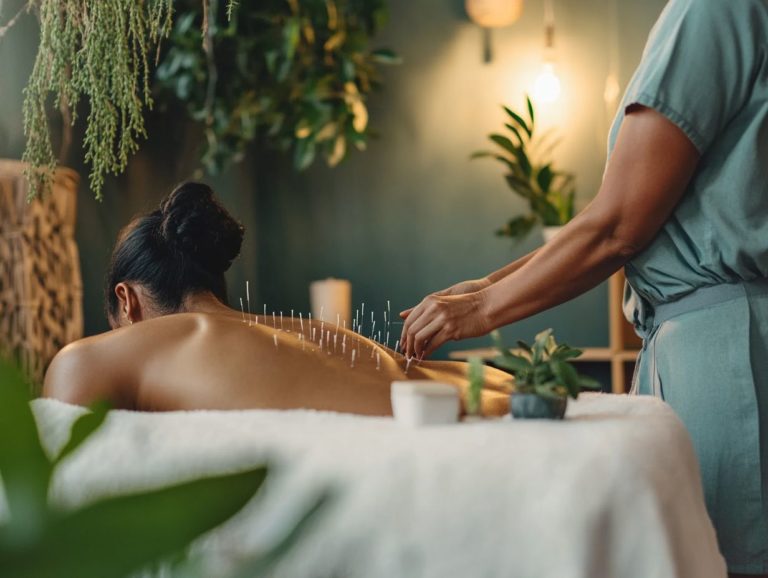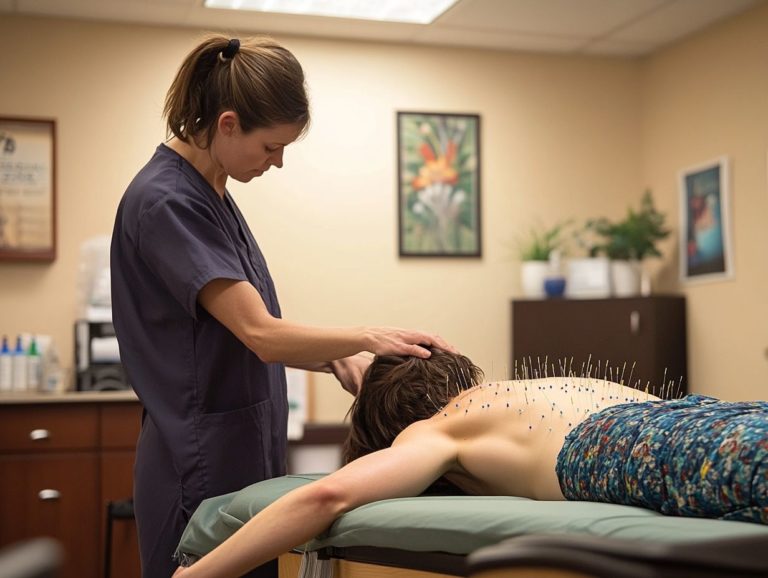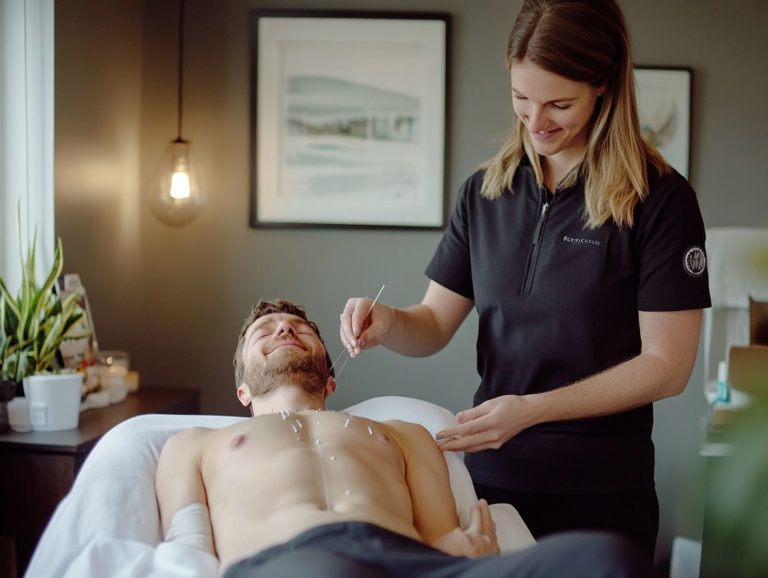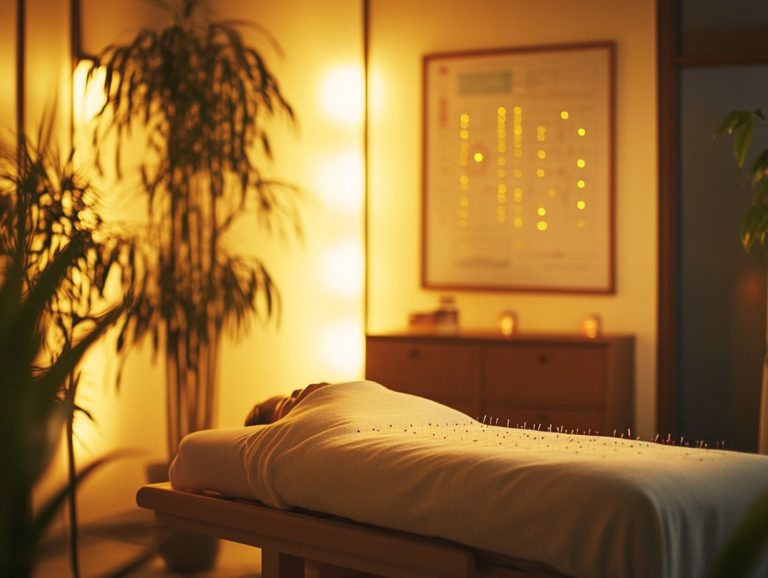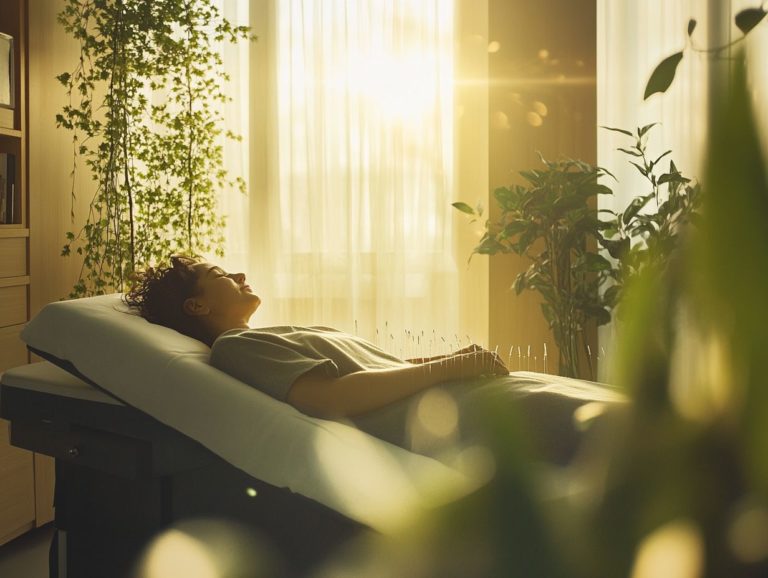5 Essential Tips for Acupuncture Aftercare
Acupuncture can truly be a transformative experience, providing relief from pain while promoting overall wellness. However, the journey doesn’t conclude the moment the needles are removed. Proper aftercare is vital for maximizing the benefits and ensuring a smooth recovery.
This article delves into five essential tips for acupuncture aftercare, guiding you through aspects like hydration, rest, and the significance of follow-up visits. You’ll also discover insights on common side effects and the role of nutrition in the healing process.
Immerse yourself in this exploration to learn how to elevate your acupuncture experience and fully support your body s recovery.
Contents
Key Takeaways:
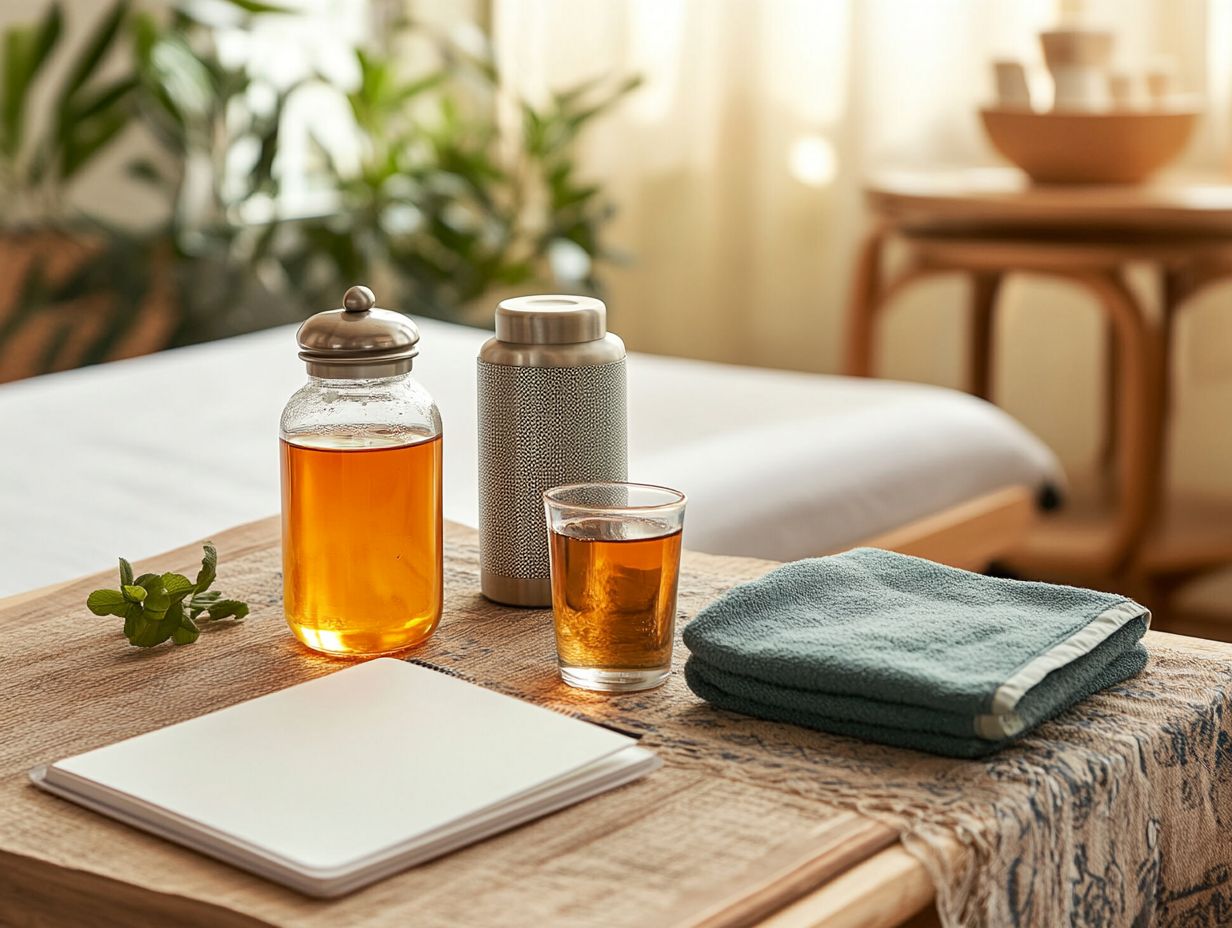
- Avoid strenuous activities to allow your body to heal properly after acupuncture treatment.
- Stay hydrated to help flush out toxins released during acupuncture treatment.
- Apply ice or heat to sore areas to reduce inflammation and promote healing.
1. Avoid Strenuous Activities
After your acupuncture session, it s vital to steer clear of strenuous activities to maintain the positive effects of the treatment. Give your body the time it needs to stabilize its energy flow.
This approach enhances pain relief and aids in recovering from various health concerns. Engaging in high-impact workouts or even intense stretching right after can disrupt the delicate balance achieved during your session.
Recognize that your body goes through significant adjustments post-treatment. Excessive movement might lead you to feel fatigued or sore instead of experiencing the intended relief.
To boost your healing journey, choose gentle activities like:
- Walking
- Yoga
- Deep stretching
These low-impact movements enhance energy circulation and facilitate recovery while minimizing the risk of overexertion. Ultimately, this promotes a more holistic healing experience.
2. Stay Hydrated
Staying hydrated after acupuncture is essential for supporting your recovery and keeping your metabolism healthy. Drinking enough fluids helps your body effectively flush out harmful substances.
Water should be your go-to choice. Make hydration a priority! Here are some fantastic options:
- Herbal teas are packed with antioxidants that bolster your immune system while aiding digestion.
- Broth-based soups are fantastic for replenishing lost electrolytes during treatment and provide comforting hydration.
- Coconut water is another superb option, brimming with electrolytes that help stabilize your energy levels.
3. Apply Ice or Heat to Sore Areas
Applying ice or heat to sore areas after your acupuncture sessions can greatly enhance your pain management strategy. It provides relief from both minor injuries and chronic pain conditions.
For example, icing the treated area can be particularly advantageous right after an acupuncture session, especially if you notice any swelling or inflammation. This technique helps constrict blood vessels and numb the pain, offering immediate relief.
Applying heat a few days post-treatment can work wonders when your muscles feel tight or stiff. It promotes relaxation and improves blood flow, aiding in your overall recovery.
By integrating these techniques, you can embark on a more comprehensive healing journey, maximizing the benefits gained from your acupuncture therapies.
Now, take charge of your wellness with these aftercare tips!
4. Get Enough Rest
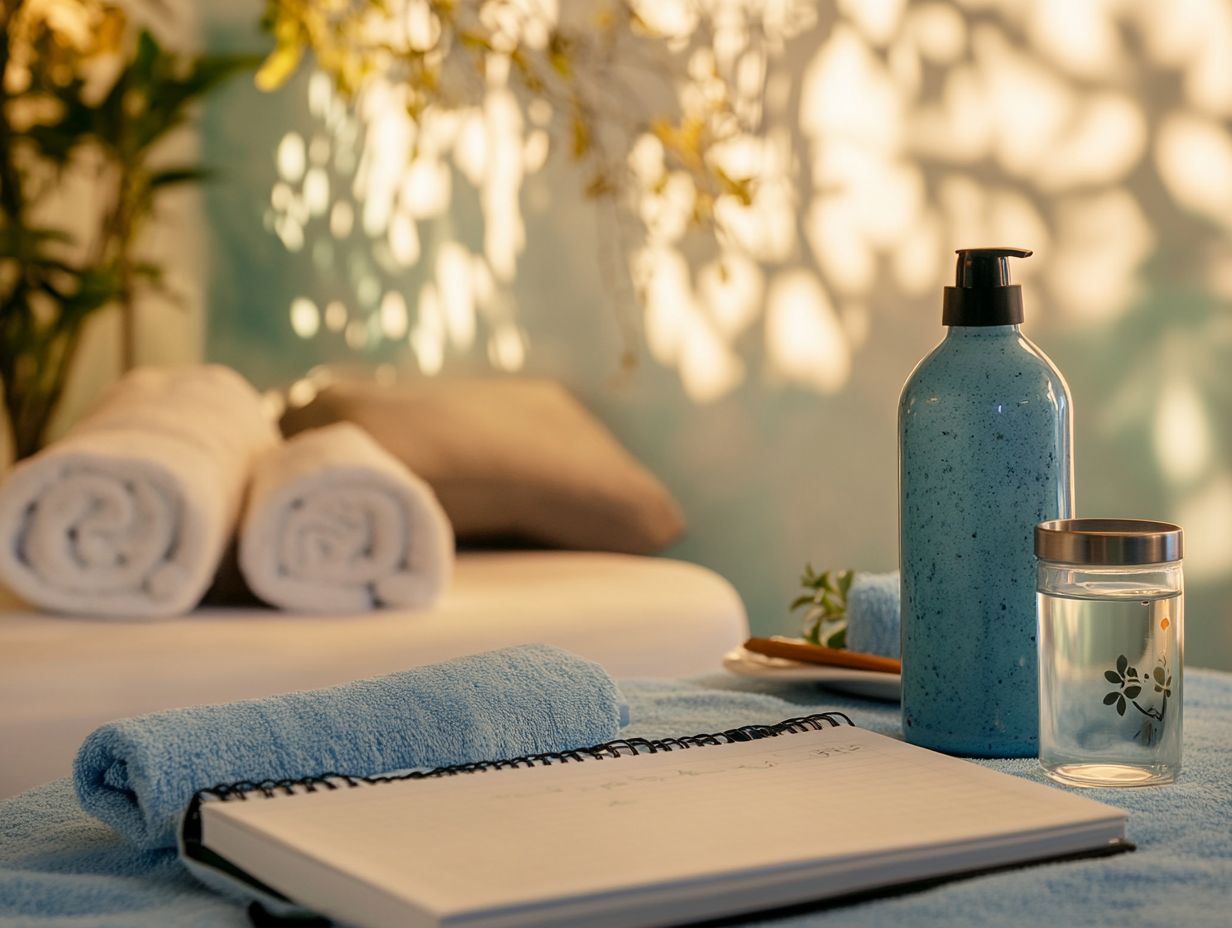
Adequate rest is essential after your acupuncture session, as it fosters relaxation and deep sleep key components for navigating any healing crisis or emotional release that may arise during treatment.
This restorative period allows your body to fully process the benefits of the session, leading to enhanced healing and overall well-being.
Sleep disturbances can negatively affect your health. They can increase stress, anxiety, and fatigue.
Creating a tranquil environment after treatment is crucial. By prioritizing sufficient rest, you can optimize the effectiveness of your acupuncture therapy, paving the way for greater emotional stability and physical rejuvenation.
This harmonious relationship between rest and recovery not only accelerates healing but also nurtures a deeper connection to your mind and body, championing a holistic approach to wellness.
5. Follow Up with Your Acupuncturist
Following up with your acupuncturist is essential for understanding how the treatment affects you and ensuring that your acupuncture care continues to effectively target your specific health conditions.
By actively sharing any changes in your symptoms or potential side effects, you play a vital role in helping your acupuncturist adjust your treatment plan as needed. This teamwork helps your acupuncturist provide better care and tailor strategies to align with your unique needs.
Regular communication not only boosts the effectiveness of your acupuncture sessions but also gives you the power to take an active role in your healing journey.
Scheduling periodic check-ins allows both you and your acupuncturist to reflect on your progress and make informed decisions moving forward, ultimately optimizing your acupuncture experience.
What Is Acupuncture Aftercare and Why Is It Important?
Acupuncture aftercare encompasses the essential practices and guidelines you should follow after your treatment. This phase is crucial for increasing the benefits of acupuncture, reducing any potential side effects, and promoting your overall health. Before your first session, it’s important to know 5 things to consider to ensure a smooth experience and maintain the smooth movement of energy throughout your body.
By embracing these aftercare practices, you set the stage for lasting health improvements and ensure that the gains achieved during your session are sustained over time, supporting a holistic approach to your healing journey.
Recommended aftercare may include advice on:
- Nutrition
- Hydration
- Gentle physical activity
- Mindfulness techniques
all designed to enhance your body s natural recovery processes. When you commit to effective aftercare, you can address specific health concerns such as chronic pain, stress, and insomnia, reinforcing the positive outcomes of your treatment.
What Are the Common After Effects of Acupuncture?
Common aftereffects of acupuncture may include light-headedness, a healing crisis, and emotional release these sensations reflect your body s adjustment to the treatment and the flow of energy within it.
You might notice these feelings emerging as your body begins to shift and realign its internal energy. For instance, light-headedness could pop up as a result of increased blood circulation and energy movement, signaling the release of stagnant energy.
Similarly, a healing crisis might occur as your body works to expel toxins, leading to temporary discomfort that ultimately serves a beneficial purpose. Emotional release can also happen, stemming from deep relaxation and the unwinding of stress, allowing those pent-up emotions to finally surface.
Remember, while these aftereffects may feel unsettling, they are often good signs of your healing progress! It s important to know that they are usually short-lived and manageable, serving as encouraging signs of progress in your journey toward balance and well-being.
How Can Proper Aftercare Help with the Healing Process?
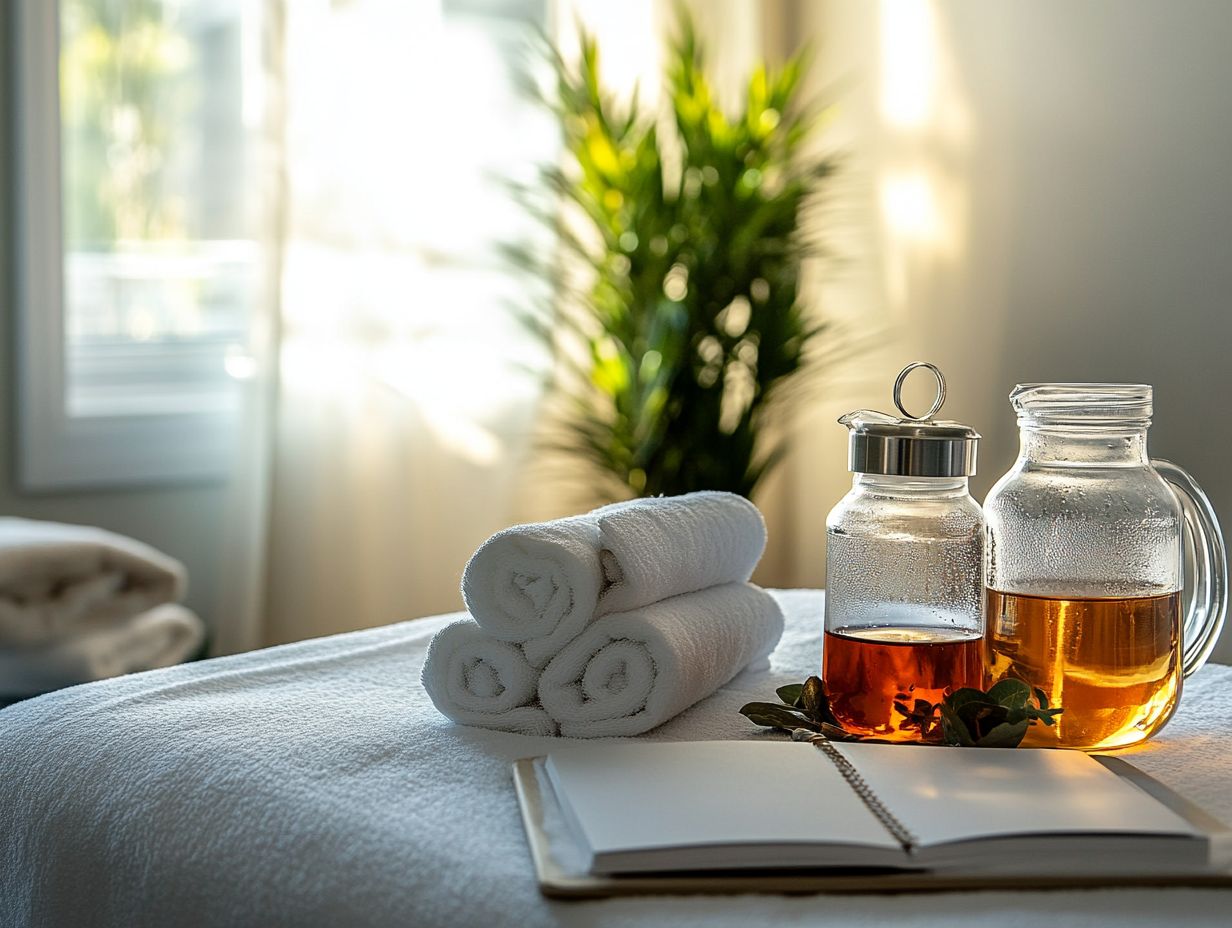
Proper aftercare after acupuncture is vital for healing. It helps your body process energy and improves your self-care practices.
Mindful practices like deep breathing and gentle stretching can enhance these benefits. Small changes like staying hydrated and eating well can greatly support your recovery.
Relaxation activities, such as meditation or light yoga, reduce stress. They also help you connect with your body, creating a better healing environment.
What Are the Do’s and Don’ts of Acupuncture Aftercare?
Knowing the do’s and don’ts of aftercare is crucial. This guidance helps you maintain a healthy diet and manage your activities well.
Good nutrition is key; focus on whole foods that are rich in vitamins. Avoid processed foods that can cause inflammation.
Light exercises like walking complement your treatment well. High-impact workouts should be avoided right after your session.
Your emotional health is also important. Engage in mindfulness or journaling to improve mental clarity and stability.
How Can Nutrition and Diet Affect Acupuncture Aftercare?
Your diet greatly impacts aftercare. Healthy foods can enhance detoxification and boost your immune system.
Include fruits and vegetables high in antioxidants, like berries and leafy greens, to combat oxidative stress. Whole grains like quinoa provide lasting energy.
Healthy fats from avocados and nuts support brain function and reduce inflammation. Omega-3 fatty acids from fish can also improve inflammation.
A balanced diet is a powerful ally in your acupuncture journey, promoting overall wellness.
What Are Some Tips for Successful Acupuncture Aftercare?
Tips for successful aftercare can elevate your pain relief and overall well-being. Embrace a holistic recovery approach.
Consider gentle stretching or light yoga for flexibility and relaxation. Staying hydrated helps flush out toxins released during treatment.
Mindfulness practices, like meditation, can reduce stress and enhance emotional stability. Allow yourself time to rest for deeper healing.
Frequently Asked Questions
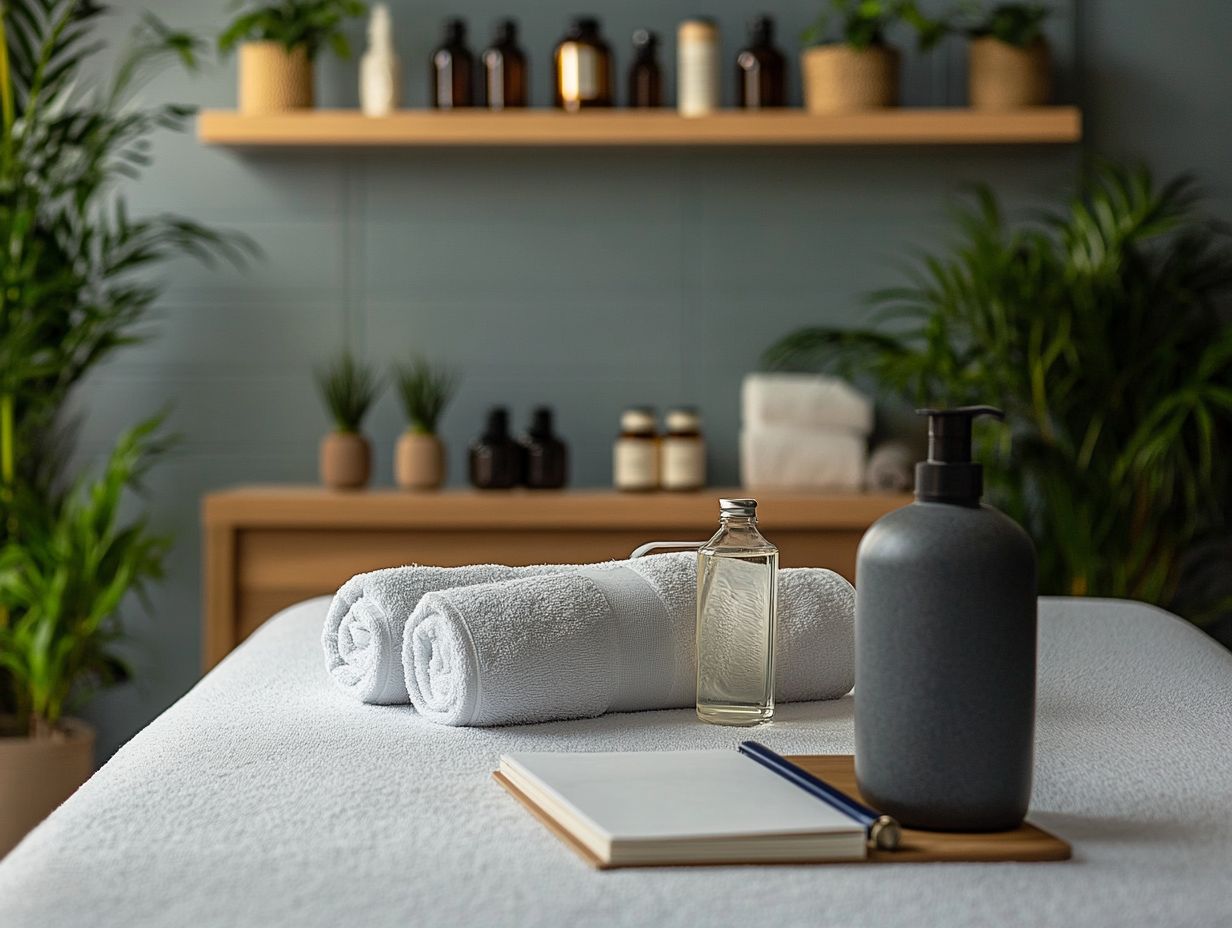
What is acupuncture aftercare?
Acupuncture aftercare means taking specific actions after your session. This helps enhance the treatment effects and promotes healing.
Why is acupuncture aftercare important?
Aftercare helps make the benefits last longer. It also reduces side effects and supports your body s natural healing process.
What are the 5 essential tips for acupuncture aftercare?
- Rest and relax after the treatment.
- Stay hydrated.
- Avoid strenuous activities.
- Follow the specific instructions from your acupuncturist.
- Be mindful of your diet. Avoid alcohol and caffeine.
How long should I rest after an acupuncture session?
The amount of rest varies by individual and treatment. Typically, resting for 20-30 minutes is recommended to let your body absorb the treatment.
Can I take a bath or shower after acupuncture?
It s best to avoid baths or showers right after your session. If you need to shower, keep the water warm, not hot, and avoid getting treated areas wet.
What should I do if I experience side effects after acupuncture?
Mild side effects like slight bruising or soreness at the needle site are normal. If you notice any severe or concerning symptoms, reach out to your acupuncturist right away!

